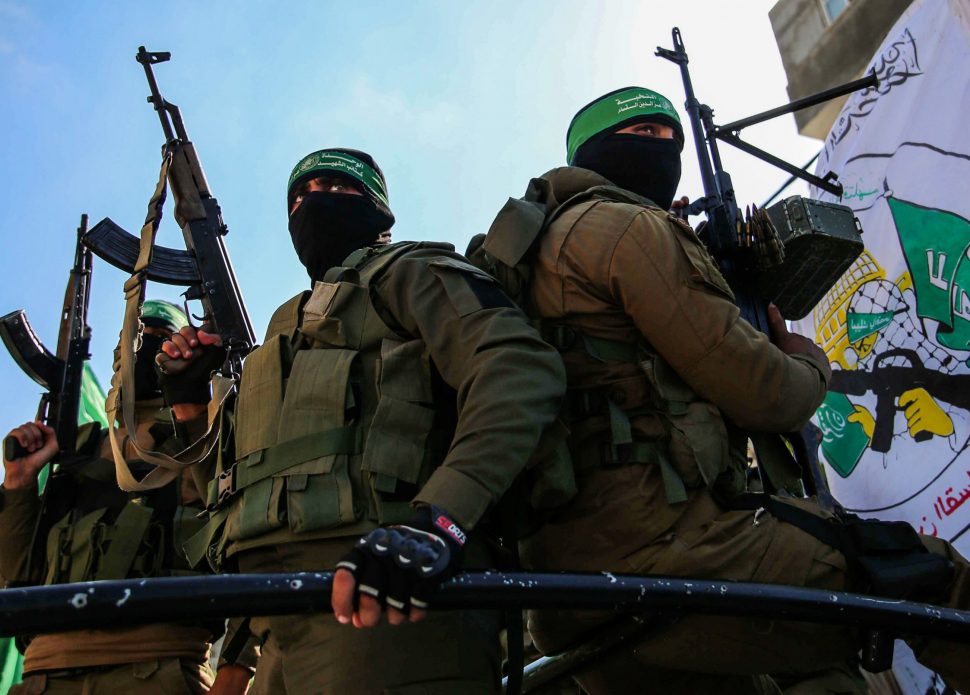
In the early days of the war, U.S. President Joe Biden averred that “there is no going back to the status quo as it stood on October the 6th.” Biden then spelled out what he meant: a new post-conflict Gaza where Hamas cannot terrorize Israel and an effort by all parties to work toward a two-state solution. U.S. President Joe Biden called for “a revitalized Palestinian Authority.” Accordingly, U.S. National Security Council spokesman John Kirby responded to the plan, saying that “the Palestinian people should have a voice and a vote through a revitalized Palestinian Authority. However, the possibility of a brighter future for Gaza hinges on an intelligent plan to empower Gazans who share the will to reach for it.
Rumors reported that there is an extensive effort in the Middle East to transform Hamas into a political party in exile, and the most apparent scenario will be an entire Israeli military government” and then “the newly formed government. The most likely scenarios are as follows:
The Palestinian Authority (PA), which was created in the wake of the Oslo peace process in the mid-1990s, is eager to rule Gaza after Hamas was removed after running the Gaza Strip since 2007. However, this is not a tremendous best-case scenario.
The PA was ousted from Gaza by Hamas in 2007 and is unlikely to embrace the idea of returning in the wake of an Israeli military campaign to unseat its rival. Moreover, the PA has not held a presidential election since 2005, when the now 87-year-old Mahmoud Abbas was first elected. An overwhelming majority of Palestinians see the PA as corrupt and inefficient (a recent poll found that 80% of Palestinians are calling for its leader, Mahmoud Abbas, to resign). For the Palestinian government to have any authority, it would take new elections, significant resources, and support from the Arabic countries and donors.
The second alternative scheme is Mohammed Dahlan, a Gazan politician in exile, who was Mr. Abbas’s national security adviser before Hamas took over Gaza in 2007 and who advises the United Arab Emirates. It has close ties to Egypt’s president, Abdel Fattah el-Sisi. Public insights into what Arab governments privately plan for the battered enclave after the war ends. Mr. Dahlan is foreseen as a new Palestinian leader of Gaza ruling with Arab state support, such as Saudis and Emiratis, who will help build “an independent economy, a normal education, normal housing, and a civil society.”
Mr. Dahlan outlined it as one under which Israel and Hamas would hand power to a new and independent Palestinian leader who could rebuild Gaza under the protection of an Arab peacekeeping force. He coordinates regularly with other Palestinian opposition leaders in a loose network and a vast network of support in Gaza, seeking to unseat Mr. Abbas. Mr. Dahlan will most likely be the new Palestinian leader who would assume responsibility for Gaza and the parts of the West Bank currently administered by the Palestinian Authority, replacing Mahmoud Abbas, the authority’s 88-year-old president, who would retain a ceremonial role.
In the third scenario, a Gazan leader from the premise of anti-Hamas sentiments who suffered from the war tactics of Hamas sacrifices civilians using them as human shields for public relations purposes, leaving Gazan civilians hungry, homeless, injured, and dead, Hamas bases troops and missiles in mosques, churches, schools, hospitals, and private homes. Accordingly, the clans in each of Gaza’s five districts could start ruling their cities alone.
The Washington Institute for Near East Policy conducted a poll of Gazans in July 2023 that shows a good percentage of Gazans are looking for a change under different leadership and a better life away from wars and conflicts. Its findings include:
Eighty-two percent agree that “Palestinians should push harder to replace their political leaders with more effective and less corrupt ones.”